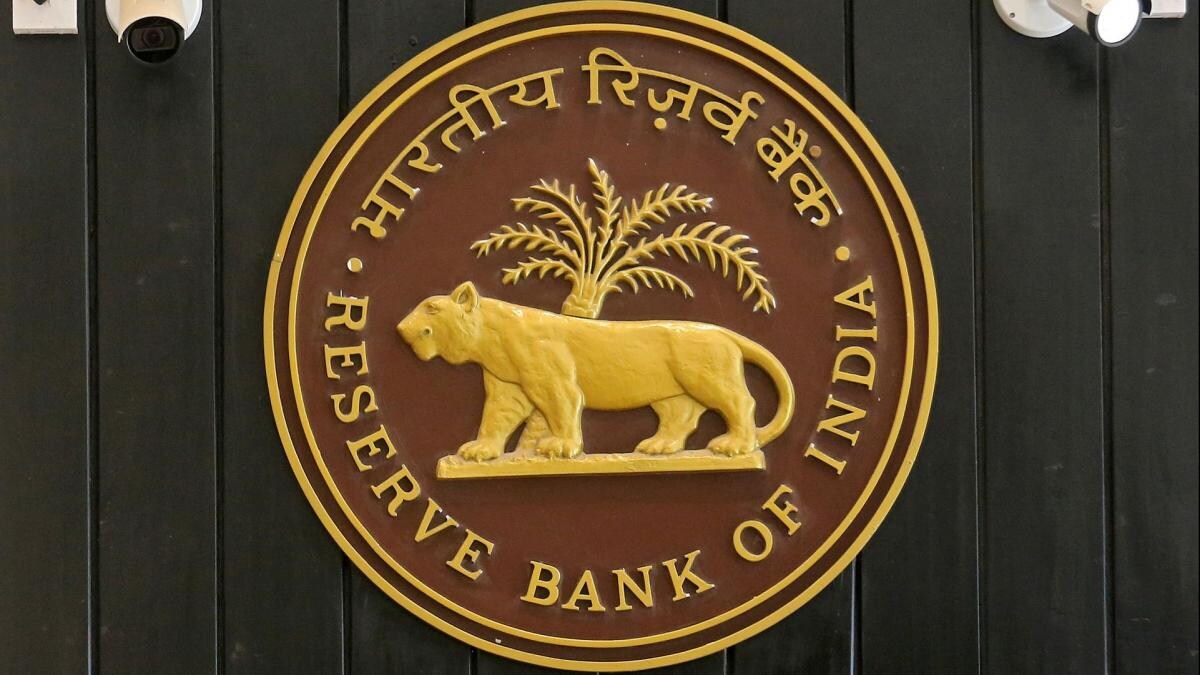09 May , 2024 By : Debdeep Gupta

Shares of Manappuram Finance and Muthoot Finance plummeted up to 8 percent on May 9, a day after the Reserve Bank of India reportedly sent them an advisory letter limiting cash disbursal of loans.
The central bank has reportedly asked both NBFCs to strictly adhere to the Income Tax Act (IT) provision on cash disbursement and said that no NBFC should disburse loan amounts over Rs 20,000 in cash.
The advisory was sent by the banking regulator after certain large gold loan-providing NBFCs had reached out to the RBI for clarity on cash disbursals. It was sent by the RBI's Department of Supervision specifically to gold loan financiers like Muthoot Finance and Manappuram Finance, reported CNBC-TV18.
The advisory is being viewed as a warning to gold-loan NBFCs to abide by the rules, reported CNBC-TV18. Notably, earlier this year in March, RBI barred IIFL Finance from disbursing gold loans, for violation of cash disbursal norms, among other issues.
Ambit Capital, in a report, said that this development is of concern because NBFCs, which focus on small-ticket loans in rural areas (MFIs, gold loans mostly), are likely to have a higher proportion of disbursals in cash (intuitively).
"Hence, this rule may impact their operations/AUM growth for a brief period," it said. For NBFCs, which have already invested in technology and processes to transition to digital disbursals, the impact is unlikely to be material, the brokerage added.
Gold loan NBFCs, especially Muthoot Finance may see some impact, according to Ambit analysts. However, they expect the impact on Muthoot to be offset by tailwinds from higher gold prices and market share gains from the IIFL gold loan ban.
"While we do not rule out operational disruptions for the company as it looks to transition small-ticket customers to digital disbursements, we believe there are enough levers to offset this one-time impact," the brokerage said.
Since the convenience of gold loans is hard to substitute, NBFCs’ edge over banks should prevail, said Ambit as it reiterated a 'buy' call on the stock with a target price of Rs 1,808 per share. At 10:18 am, Muthoot Finance shares were trading 4.8 percent down at Rs 1,581.15 apiece on NSE.
Meanwhile, Manappuram Finance shares were trading 5.6 percent lower at Rs 169.80. After the recent drop, the stock has turned negative for the year, while Muthoot is trading up by around 8 percent on a year-to-date basis.
It is worth noting that gold loans formed 84 percent of Muthoot Finance's Assets Under Management (AUM) and 51 percent of Manappuram's as of the December 2023 quarter.
According to Morgan Stanley, while 40 percent of Manappuram's disbursements happen in cash and nearly 56 percent of the gold loan business is online, around 40 percent of Muthoot's gold loans are transacted online.
The international brokerage expects the near-term sentiment to be negative for both Manappuram and Muthoot Finance in the near term. It also sees a logical case for Manappuram's stock to fare better compared to Muthoot due to less exposure to gold loans.
Should you invest in gold NBFCs?
Gaurang Shah, Senior Vice President, Geojit Financial Services advises against exposure to gold loan companies, given the regulatory risks.
Instead, the expert suggested investors look at alternate investment instruments like Sovereign Gold Bonds (SGBs) and gold exchange-traded funds (ETFs) as they provide easy access to gold investment without the complexities associated with RBI regulations.
Investing in gold loan companies entails regulatory risks, as seen with past interventions by the Reserve Bank of India to address unsecured exposures and borrower credibility issues. Similar regulatory actions may occur in the future, potentially leading to systemic risks.
"Therefore, for investors interested in gold as an asset class, considering gold Sovereign bonds and Gold ETFs can help mitigate regulatory risks associated with gold loan companies.
0 Comment